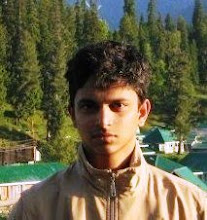Nigel Britto
For many with only a passing interest in national affairs, he is the man who could have been president; that somebody else got the top job is another matter. Karan Singh, a former prince whose father signed the historic treaty that made Kashmir part of India, is a personality as towering as his physique. Many Goans with a spiritual bent of mind believed the magic of this year's Kosambi festival of ideas was that the best was saved for last. The man in black didn't disappoint.
Surprisingly agile for his almost 80 years, he was described as 'today's Vivekananda' by compere Subodh Kerkar. Singh, born in Cannes and a former Indian ambassador to the US, didn't waste time belting rhetoric. "Scriptures should help us meet our contemporary conditions," he said, explaining how the Vedanta is the high watermark of world culture. Distinguishing India's history to the rest of the world, he said, "In our civilization, everything evolved from dialogue. Therefore, it is open to reinterpretation from age to age."
Not only does he believe that Vedanta is India's greatest contribution to the world, he also asserted that "it is not intimidated by the growth of science and technology". Though armed with notes, he hardly had to refer to them. His presentation smacked of erudition; with eloquence and authority, he propounded the concepts of Brahman and Atman, the all-pervasiveness of the divine, and the presence of the divine in all human beings. He said that it's necessary to develop the inner light so as to yolk together Atman and Brahman.
With the air of a seasoned university lecturer that instinctively gauges the intellectual prowess of his audience, Singh spoke in impeccable English, joked, switched to Sanskrit when required, and even paused to review points every few minutes.
Then, he explained the four main kinds of yoga, Gyan yoga (the mind's way), Bhakti yoga (the heart's way), Karma yoga (the hand's way) and Rajya yoga (the royal way). He stressed on the importance of working with dedication, asserting that "the attitude with which you work is more important than that the work you do". He also gently chided the definition of 'Yoga' as understood by the west. "What they think is yoga, those physical exercises, is only a small part", he said, adding that "standing on your head is not condition precedent to spiritual enlightenment". He said the four forms of yoga represent the holistic philosophy of life.
Singh, who went ahead with his presentation unperturbed despite the mobile phone menace that's fast becoming as integral a part of the festival as the lectures themselves, then explained three concepts that evolved out of the Vedanta teaching-The world as a family, essential unity of all religions, and the welfare of all beings. "We have to accept the multiplicity of paths to the divine," he said.
Singh, who also heads an organization called Temple of Understanding that promotes inter-faith dialogue, expressed regret that inter-faith understanding is still at the periphery and has not reached the centre of public consciousness. "Environment, for instance, started out at the periphery but has now been identified as a major concern," he said, prophesying that "unless there is harmony between religions, we will not have peace on earth".
At one stage, he challenged his audience. "I don't want to embarrass you, but how many of you know that the Constitution has fundamental duties, and how many", he asked. "In India, people vigorously protect their rights, but nobody wants to talk about duties", he added.
Arguing against Vedanta being branded a philosophical concept, he said, "this is not just alternative philosophy for scholars; it needs to be imbibed by all... There may be over 200 countries in the world, but at the end of the day we're just denizens of a speck of dust", he said.
Responding to a question after his presentation, he stressed the need to introduce value education in schools. "We can't give religious instruction, because it's banned by the Constitution, but we can and should teach our children values," Singh said. To another, political, question, he responded sharply, "this is political, not Vedanta. You can't get two lectures for the price of one." At the end, he expressed sorrow that "a nation based on Satyameva Jayate is sinking in a mire and morass of corruption".
This article was first published on The Times of India, Goa, in its edition dated February 11, 2011.

No comments:
Post a Comment